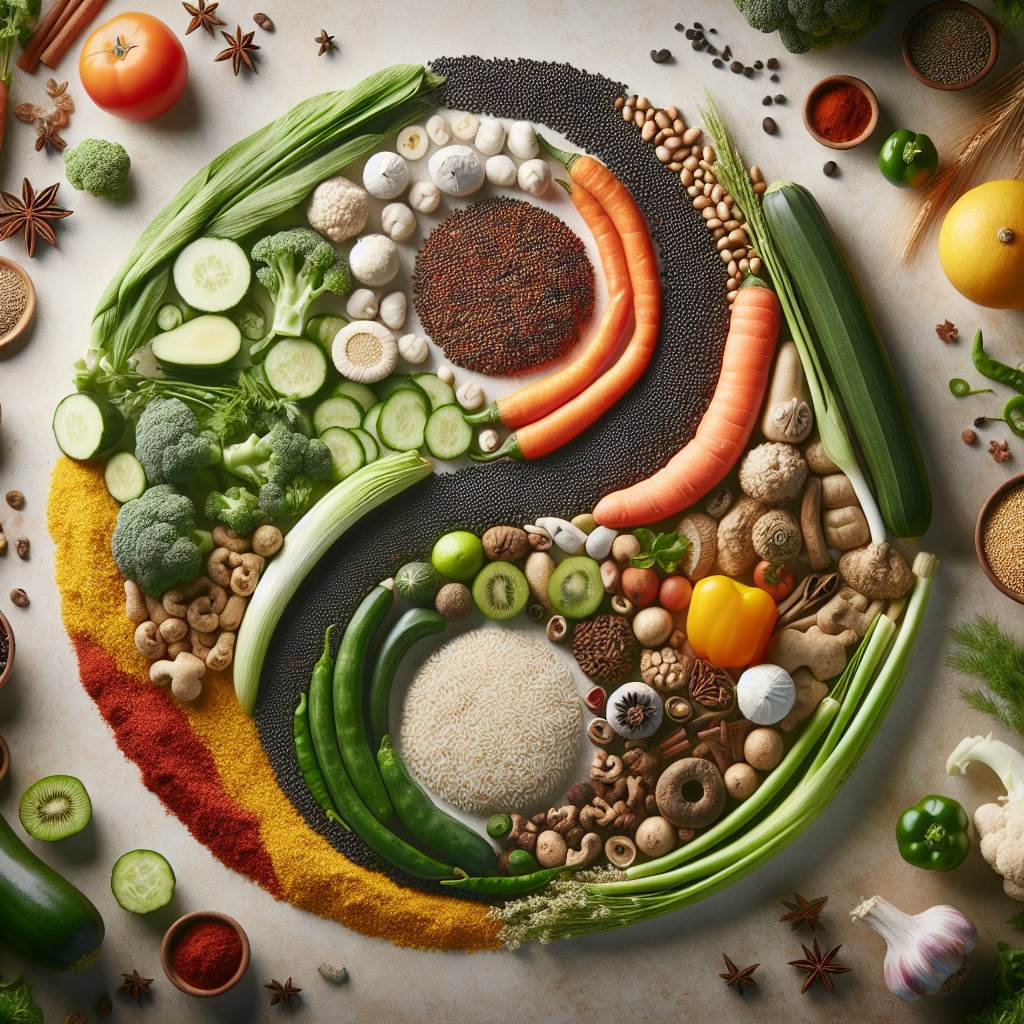Have you noticed how many people are talking about “whole foods,” “clean eating,” and “food as medicine” these days? This growing interest in natural approaches to health isn’t just a passing trend—it represents a significant shift in how we think about wellness. At the heart of this movement are holistic nutritionists, modern-day food healers who blend ancient Eastern wisdom with contemporary nutritional science to help people achieve optimal health.
Unlike conventional dietitians who might focus primarily on calories and macronutrients, holistic nutritionists view food through a wider lens. They see nutrition as just one piece of a complex puzzle that includes physical, emotional, and spiritual wellbeing. This comprehensive approach is resonating with more and more health-conscious individuals who are seeking natural healing methods beyond what conventional medicine offers.
What Exactly Does a Holistic Nutritionist Do?
Key Point: Holistic nutritionists are wellness professionals who go beyond basic dietary advice to address the whole person—body, mind, and spirit.
If you’re wondering what a holistic nutritionist actually does in practice, the answer goes far beyond simply telling clients what to eat. These professionals wear many hats in their mission to guide people toward better health.
At its core, a holistic nutritionist provides nutritional education tailored to each client’s unique needs. Rather than prescribing one-size-fits-all diets, they take the time to understand your individual body, lifestyle, preferences, and health concerns. This personalized approach is a hallmark of holistic nutrition—recognizing that what works wonderfully for one person might not work at all for another.
Beyond education, holistic nutritionists serve as wellness coaches who support and motivate their clients throughout their health journeys. They help set realistic goals, track progress, and make adjustments when needed. As one client described it, “My holistic nutritionist isn’t just someone who tells me what to eat—she’s a partner in my wellness journey who helps me understand why certain foods affect me the way they do.”
What truly sets holistic nutritionists apart is their focus on root causes rather than symptoms. Instead of just addressing specific issues like weight management or digestive problems, they promote overall wellness by looking at how different aspects of health are interconnected. For example, if you’re experiencing chronic fatigue, a holistic nutritionist might explore not only your diet but also your sleep patterns, stress levels, and emotional wellbeing.
“Holistic nutritionists recognize that health issues rarely exist in isolation,” explains a certified practitioner with ten years of experience. “We’re trained to see connections between seemingly unrelated symptoms and to address the whole person, not just individual complaints.”
Eastern Wisdom Meets Modern Nutrition
Traditional Wisdom: Eastern nutrition philosophies like Traditional Chinese Medicine and Ayurveda offer profound insights that complement modern nutritional science.
One of the most fascinating aspects of holistic nutrition is how it incorporates principles from Eastern healing traditions that have stood the test of time for thousands of years. Traditional Chinese Medicine (TCM) and Ayurveda from India offer profound insights that complement modern nutritional science in surprising ways.
In TCM, food is classified according to its energetic properties—whether it’s warming or cooling, and which organs or meridians (energy pathways) it affects. A holistic nutritionist versed in these principles might recommend warming foods like ginger and cinnamon during winter months to support your body’s natural needs during cold weather. They understand that according to Eastern wisdom, consuming seasonal foods that match the external environment helps maintain harmony within the body.
As one practitioner puts it, “Traditional Chinese Medicine views food not just as fuel but as therapy—a means to nourish, balance, and harmonize the body’s energy.”
Similarly, Ayurvedic principles categorize individuals into different constitutional types (doshas) with specific dietary needs. A holistic nutritionist might help you identify whether you’re predominantly Vata, Pitta, or Kapha, and tailor nutritional recommendations accordingly. For instance, someone with a fiery Pitta constitution might benefit from cooling foods like cucumbers and mint, especially during summer months or stressful periods.
Herbal remedies play an important role in Eastern nutrition philosophies as well. Many holistic nutritionists incorporate therapeutic herbs and spices into their recommendations, understanding their traditional uses for supporting various body systems. Turmeric for inflammation, holy basil for stress, and goji berries for immune support are just a few examples of how Eastern herbal wisdom enriches holistic nutritional approaches.
“One of the core principles guiding Eastern nutrition is the Five Elements Theory, which connects food, the body, and the natural world in a harmonious system,” notes a specialist who has studied both Western nutrition and Eastern healing arts. “This holistic perspective gives us tools that conventional nutrition science is only beginning to appreciate.”
Practical Guidance for Everyday Wellness
Everyday Application: Holistic nutritionists excel at turning complex wellness theories into practical lifestyle changes that fit individual needs.
While the philosophical underpinnings of holistic nutrition are fascinating, what makes holistic nutritionists truly valuable is their ability to translate these concepts into practical, everyday guidance. They’re masters at empowering clients with skills and knowledge that transform abstract wellness theories into tangible lifestyle changes.
A typical session with a holistic nutritionist might include learning how to read food labels beyond just checking calories. They’ll teach you to identify hidden sugars, processed oils, and artificial additives that might be disrupting your body’s natural balance. Many clients report feeling shocked at discovering what’s actually in the foods they thought were healthy.
Grocery shopping tours are another valuable service that holistic nutritionists often provide. Walking through store aisles together, they’ll show you how to select the freshest produce, choose quality proteins, and navigate the often confusing world of health food products. “After shopping with my nutritionist, I see the grocery store completely differently,” shares one client. “It’s like having a new pair of eyes that can see beyond marketing claims to what’s truly nourishing.”
In the kitchen, holistic nutritionists offer practical cooking techniques that maximize both nutrition and flavor. They might demonstrate how to properly prepare beans to enhance digestibility, teach fermentation methods that support gut health, or show how to use healing herbs and spices to reduce the need for salt and sugar. These hands-on skills empower clients to take control of their health in ways that last far beyond the consultation period.
What truly sets holistic nutritionists apart is their commitment to creating personalized plans that work with—not against—individual lifestyles. They recognize that even the most nutritious diet is useless if it doesn’t fit into your real life. “I had a client who traveled four days a week for work,” recalls one nutritionist. “Instead of giving her an idealistic meal plan she couldn’t possibly follow, we created strategies specifically for airports, hotel rooms, and business dinners. Six months later, her energy had transformed despite maintaining her hectic schedule.”
This practical approach extends to budgeting as well. Contrary to the myth that healthy eating requires expensive specialty foods, many holistic nutritionists excel at creating nourishing plans that respect financial constraints. They might suggest seasonal shopping to reduce costs, teach batch cooking methods to save time and money, or recommend prioritizing which foods are worth buying organic and which are fine to purchase conventionally grown.
Holistic Nutrition in the Digital Age
Future Trends: Digital platforms like EASTCHI AI are making holistic nutrition principles more accessible through the innovative combination of Eastern wisdom and modern technology.
As we navigate an increasingly complex health landscape, the ancient wisdom championed by holistic nutritionists is finding powerful new expression through technology. This marriage of traditional healing knowledge and modern innovation represents the future of personalized nutrition—and it’s exactly what platforms like HerbalsZen’s EASTCHI AI are pioneering.
EASTCHI AI exemplifies how Eastern medical wisdom can be integrated with artificial intelligence to create highly personalized wellness recommendations. By analyzing individual constitutional types through the Five Element Theory, this innovative system can generate customized nutrition plans that respect both ancient principles and modern nutritional science.
For example, the traditional Eastern concept that different body types require different foods is now being validated by modern research on bioindividuality and nutrigenomics. EASTCHI AI harnesses this convergence of ancient wisdom and cutting-edge science, offering nutrition guidance that’s truly tailored to each person’s unique makeup.
Seasonal dietary adjustments, long emphasized in Eastern medicine, become practical and accessible through digital platforms that can remind users when and how to shift their eating patterns as the natural world changes around them. “In Eastern nutrition philosophies, eating with the seasons isn’t just poetic—it’s fundamental to health,” explains a holistic nutrition expert. “Technology can help us reconnect with these natural rhythms that our ancestors understood intuitively.”
The Eastern concept of food as medicine finds powerful expression through AI systems that can identify specific therapeutic foods for individual health concerns. Rather than generic recommendations, these advanced tools can suggest precise dietary adjustments based on both traditional wisdom and scientific research, amplifying the effectiveness of holistic nutritional approaches.
What makes this technological evolution particularly exciting is how it democratizes access to holistic nutrition principles. Not everyone can afford regular sessions with a holistic nutritionist, but digital tools make this wisdom more accessible to those seeking natural approaches to wellness. The result is a broader reach for time-tested Eastern nutrition concepts that might otherwise remain accessible only to a privileged few.
For health-conscious individuals intrigued by Eastern healing philosophies, these developments represent an exciting frontier. The holistic nutritionist of today may work directly with clients or may help develop the intelligent systems that bring personalized nutrition to a global audience. Either way, their role as interpreters of ancient wisdom for modern wellness needs remains essential.
As we continue to discover the profound connections between what we eat and how we feel, holistic nutritionists stand as important guides—bridging Eastern and Western approaches, traditional wisdom and modern science, philosophical principles and practical actions. Whether through in-person consultations or innovative digital platforms like EASTCHI AI, these food healers help us navigate the complex relationship between nutrition and holistic wellbeing, empowering us to make choices that nourish not just our bodies but our entire being.



